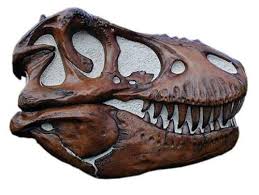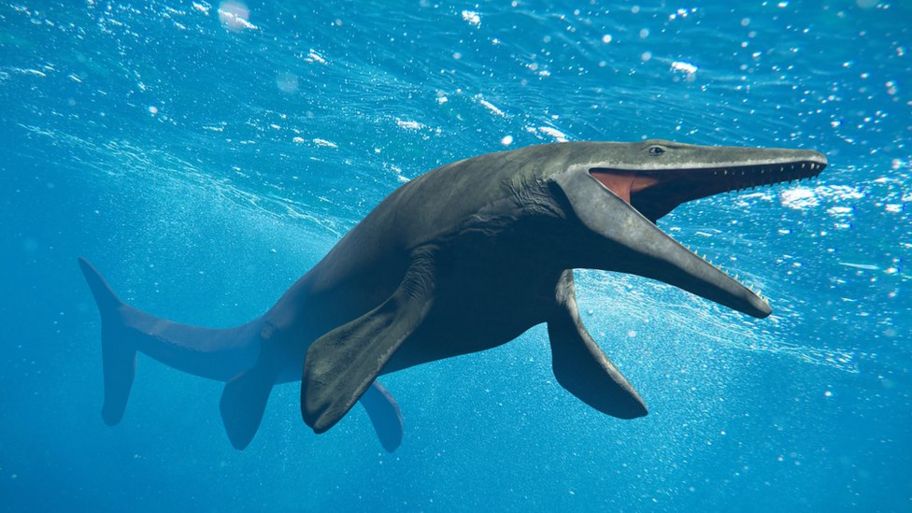This Dino was likely a carnivore that lived in the......
water/sea/ocean
Name one way that fossils can form
natural cast, permineralization, imprints, amber casts(tar, ice, bogs etc.)
SURPRISE everyone gets 100 points
YAY!
True or false: populations evolve, not individuals
TRUE!
A Mormon cricket is a long-horned type of this insect; if we could jump like them we could leap about 120 feet in the air
Grasshopper!
Was this dinosaur a carnivore, herbivore, or omnivore? WHY?!?!

Carnivore, look at those teeth!
Name one material that can preserve the remains of ancient animals and plants
tar, amber, ice, bogs, silt
Using the half life of elements to determine how old a rock is
Radiometric dating
Who published "the Origin of Species"
Charles Darwin
Peas have 14 shrimp have 254 & humans have 46 of these nucleic acid structures arranged in 23 pairs
Chromosomes!
Was this dinosaur a swimmer, land creature, or flying dino?
Flying Dino! Pterodactyl!
A bird wing and a bat wing are an example of
analogous traits
Name the four pieces of evidence for evolution that we have covered:
Comparative anatomy
dna and genetics
fossils
embryology
All vertebrates have ____________ and ___________ as early embryos
gill slits and tails
Evolutionary term for changes in behavior & /or physiology of a species to become suited to a new environment
adaptation
Do these two animals have a common ancestor?
TAG CCG AAT GCT ACG
TAG GGG AAT GCT ACG
Yes! They have multiple base pairs in common
A bat wing and a human hand are an examples of
homologous structures
Something that helps you survive
advantageous traits
When the individual animals with the most advantageous traits survive
survival of the fittest
What is the name of this dinosaur? It was one of the first "whales"

Basilosaurus
Comparing the skeletons of different animals to look for similarities and differences
comparative anatomy
Name one piece of evidence that whales evolved from land mammals
- noses became blowholes
- fins have the same bones as a dog leg/foot
- spines move the same way
organs or bones that used to have a purpose but no longer do
vestigial structures
the habitat determines which traits are beneficial and advantageous
Natural Selection
It can't fly or breathe fire but this largest living lizard has a venomous bite that inhibits blood clotting
The komodo dragon